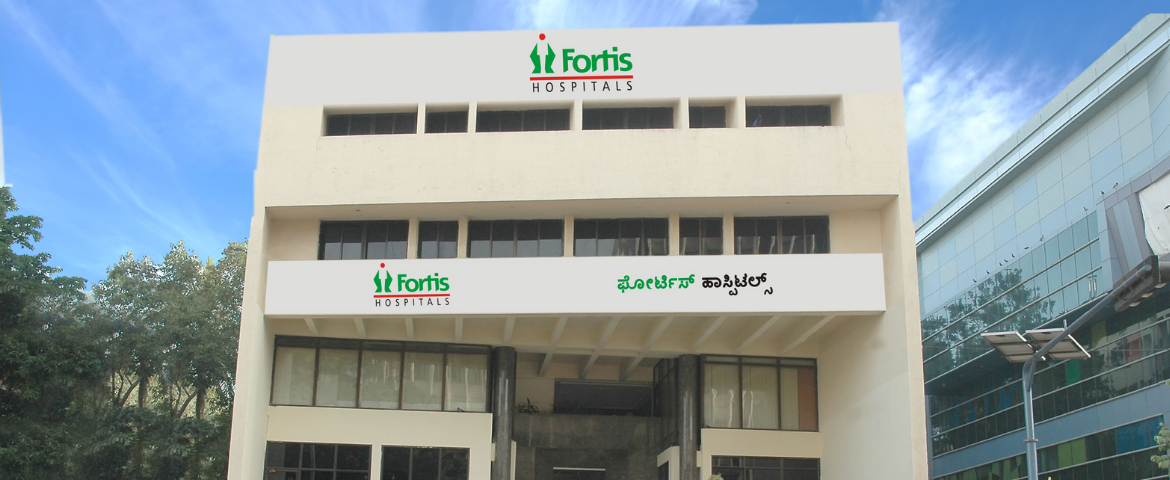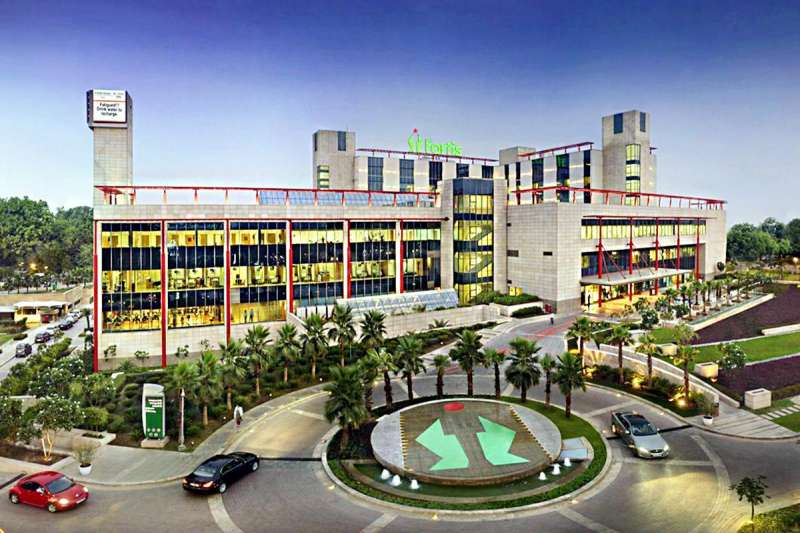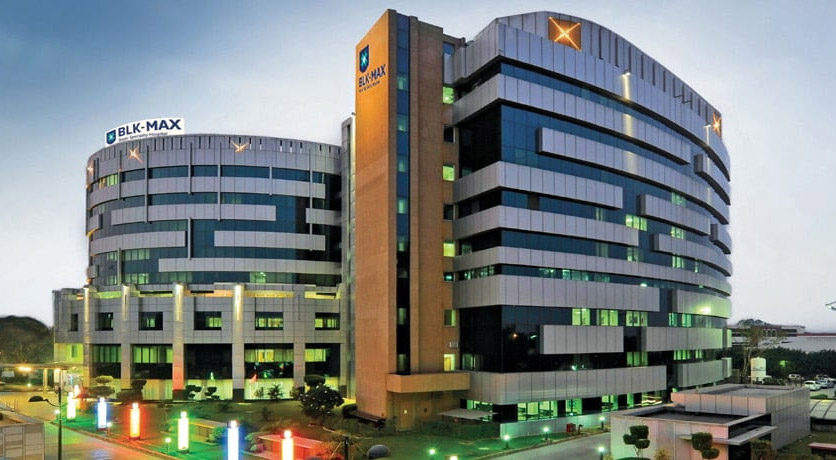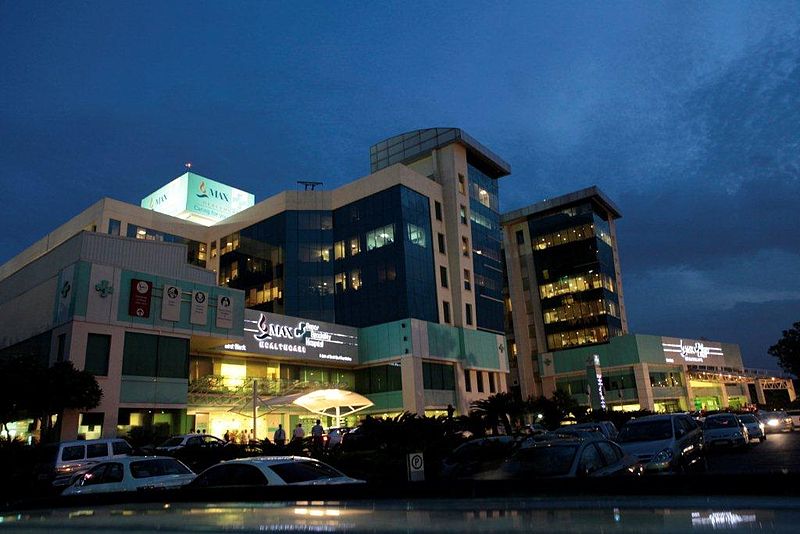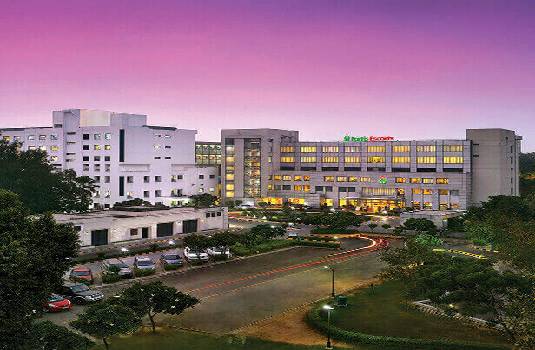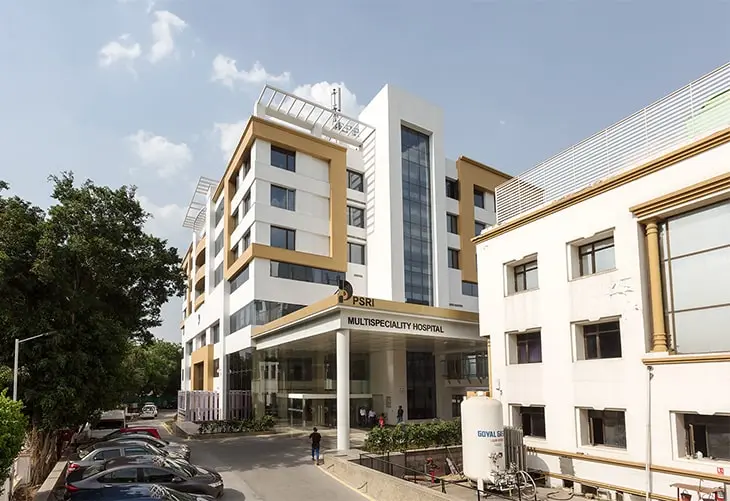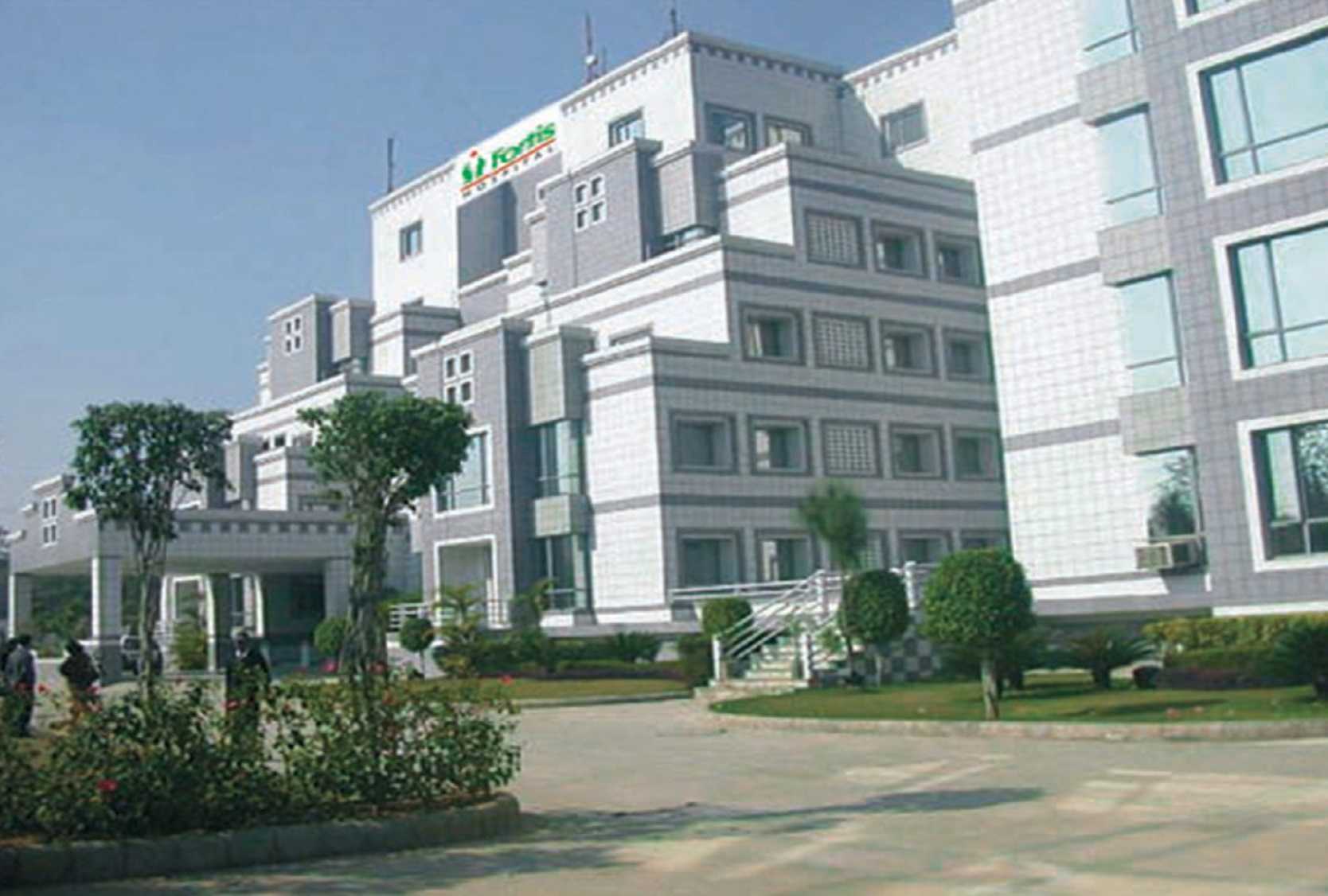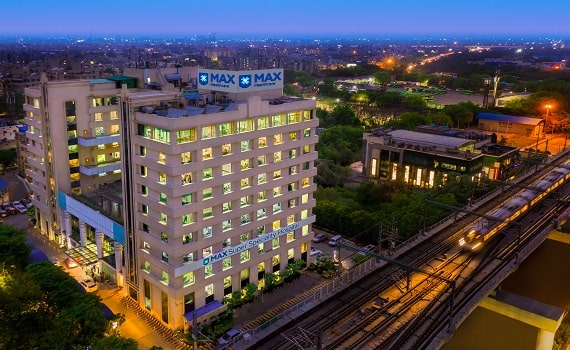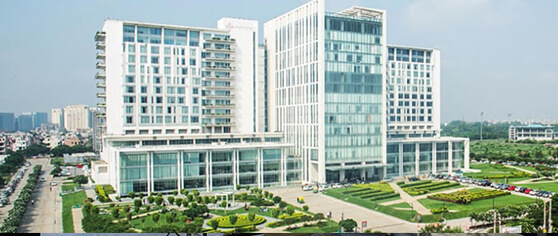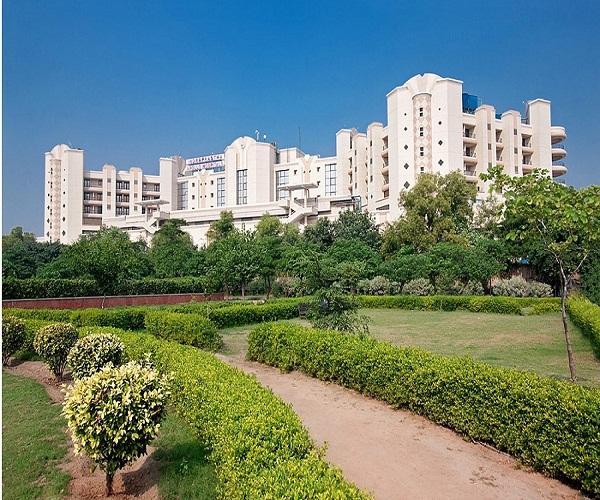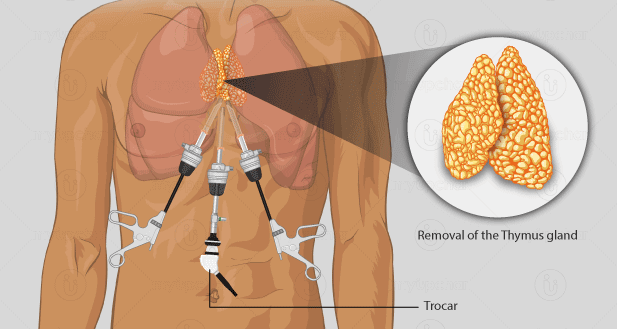Thymectomy cost in India
The cost of Thymectomy in India ranges
from USD 2800 to USD 7000
Thymectomy:
It is a surgical operation in which thymic tissue is removed from the thymus. To assure the removal of all accessible thymus, a "maximal" thymectomy is necessary. All patients receiving thymectomy for myasthenia gravis with or without thymoma and in the treatment of myasthenia gravis with or without myasthenia gravis should have this surgery done. Thymus is a gland located in the chest that aids in the development of the body's immune system. A thymectomy, on the other hand, is a surgical treatment that removes the thymus gland. It is no longer used to treat Myasthenia Gravis in the hopes of boosting the disease's chances of remission.
Thymectomy:
It is a surgical operation in which thymic tissue is removed from the thymus. To assure the removal of all accessible thymus, a "maximal" thymectomy is necessary. All patients receiving thymectomy for myasthenia gravis with or without thymoma and in the treatment of myasthenia gravis with or without myasthenia gravis should have this surgery done.
Thymus is a gland located in the chest that aids in the development of the body's immune system. A thymectomy, on the other hand, is a surgical treatment that removes the thymus gland. It is no longer used to treat Myasthenia Gravis in the hopes of boosting the disease's chances of remission.
Disease Overview:
Myasthenia gravis
Myasthenia gravis is a neuromuscular condition caused by an autoimmune disease that produces weakening in the skeletal muscles that increases with exercise and improves with rest. These muscles are in charge of breathing and moving various portions of the body, such as the arms and legs.
Disease Signs and Symptoms
Muscle weakness that increases after times of exertion and improves after periods of rest is a characteristic of myasthenia gravis. The condition frequently (but not always) involves muscles that govern eye and eyelid movement, facial expression, chewing, talking, and swallowing.
The development of the condition can be rapid, and the symptoms of myasthenia gravis are frequently misdiagnosed. Myasthenia gravis causes varying degrees of muscular weakening in different people.
Myasthenia gravis patients may have the following symptoms:
- Muscle weakness in the eyes (called ocular myasthenia)
- one or both eyelids dropping (ptosis)
- double vision or muddled vision (diplopia)
- a change in facial expression swallowing difficulties shortness of breath poor speaking (dysarthria)
- Arms, hands, fingers, legs, and neck weakness.
- Myasthenia gravis causes extreme weakness that can lead to respiratory failure, which need prompt medical attention.
Disease Causes:
Myasthenia gravis is an autoimmune illness, which means the immune system fights itself instead of protecting the body from outside invaders.
Myasthenia gravis is caused by a malfunction in nerve impulse transmission to muscles. It happens when neuron and muscle communication is disrupted at the neuromuscular junction, which is where nerve cells join to the muscles they regulate.
Neurotransmitters are molecules that transfer information between neurons, or brain cells. When electrical signals or impulses travel along a motor neuron, the nerve terminals normally produce acetylcholine, a neurotransmitter that binds to acetylcholine receptors on the muscle. When acetylcholine binds to its receptor, it stimulates the muscle and causes it to contract.
Antibodies (immune proteins generated by the body's immune system) block, modify, or kill acetylcholine receptors at the neuromuscular junction in myasthenia gravis, preventing the muscle from contracting. Antibodies to the acetylcholine receptor are the most common cause, although antibodies to other proteins, such as MuSK (Muscle-Specific Kinase), can also disrupt transmission at the neuromuscular junction.
The thymus gland is a gland found in the chest.
Myasthenia gravis is linked to the thymus gland, which regulates immunological function. It develops slowly until adolescence, after which it shrinks and is replaced by fat.
The thymus is responsible for creating T-lymphocytes or T cells, a kind of white blood cell that defends the body from viruses and illnesses, and it plays a vital part in the development of the immune system throughout childhood.
Disease Diagnosis:
To confirm the diagnosis of myasthenia gravis, a doctor may perform or request numerous tests:
A physical and neurological examination will be performed. A physician will initially do a physical examination and assess the patient's medical history. The physician will assess muscular strength and tone, coordination, sense of touch, and look for eye movement impairment during a neurological examination.
A test for edrophonium. This test employs edrophonium chloride injections to temporarily alleviate weakness in persons with myasthenia gravis. The medication prevents acetylcholine breakdown and momentarily raises acetylcholine levels at the neuromuscular junction. It's most commonly used to check for ocular muscle weakness.
A blood test is required. Antibodies against acetylcholine receptors are unusually high in most people with myasthenia gravis. In around half of people with myasthenia gravis who don't have acetylcholine receptor antibodies, a second antibody termed anti-MuSK antibody has been discovered. This antibody can also be detected by a blood test. However, neither of these antibodies are present in some people with myasthenia gravis. These people are believed to have seronegative (antibody-free) myasthenia
Electrodiagnostics. Repetitive nerve stimulation is a diagnostic technique that involves repeatedly stimulating a person's nerves with tiny electrical pulses to weary certain muscles. Myasthenia gravis muscle fibres, like those in other neuromuscular illnesses, do not react as effectively to repeated electrical stimulation as those in healthy people. The most sensitive diagnostic for myasthenia gravis is single fibre electromyography (EMG), which identifies decreased nerve-to-muscle communication. When other tests fail to show abnormalities, EMG can be extremely helpful in detecting mild instances of myasthenia gravis.
Imaging for diagnostic purposes. A thymoma can be detected via diagnostic imaging of the chest, such as computed tomography (CT) or magnetic resonance imaging (MRI).
Pulmonary function tests are used to determine how well your lungs are working. Measuring breathing strength can aid in predicting whether or not respiration will fail, resulting in a myasthenic crisis.
Because weakness is a sign of many different diseases, the diagnosis of myasthenia gravis is frequently overlooked or delayed (sometimes up to two years) in persons who have modest weakness or weakness that is limited to a few muscles.
Disease Treatment:
Myasthenia gravis can now be managed in most cases. There are a variety of treatments available to aid with muscular weakness reduction and improvement.
Thymectomy. By normalising the immune system, this procedure to remove the thymus gland (which is typically aberrant in persons with myasthenia gravis) can lessen symptoms and even cure some people. Thymectomy is beneficial for both persons with thymoma and those who have no evidence of the tumours, according to a NINDS-funded research. The operation decreased muscular weakness and the need for immunosuppressive medicines in 126 persons with myasthenia gravis and no visible thymoma, according to the clinical trial.
Antibody that is monoclonal. This medication aims to stop cholinergic antibodies from causing damage to the neuromuscular junction. Eculizumab was licenced by the United States Food and Drug Administration in 2017 for the treatment of generalised myasthenia gravis in people who test positive for the antiacetylcholine receptor (AchR) antibody.
Anticholinesterase medicines are drugs that inhibit the enzyme cholinesterase. Anticholinesterase medications such as mestinon or pyridostigmine, which decrease the breakdown of acetylcholine at the neuromuscular junction and hence enhance neuromuscular transmission and muscle strength, are used to treat the disease.
Drugs that inhibit the immune system. By inhibiting the formation of aberrant antibodies, these medicines boost muscular strength. Prednisone, azathioprine, mycophenolate mofetil, and tacrolimus are among them. The medications can have serious negative effects and need to be closely monitored by a doctor.
Intravenous immunoglobulin and plasmapheresis In severe instances of myasthenia gravis, these treatments may be a possibility. Antibodies attacking the neuromuscular junction can be found in plasma (a liquid component of blood). These therapies work by removing the harmful antibodies, but their effects generally only last a few weeks to months.
Plasmapheresis is a method in which dangerous antibodies in plasma are removed and replaced with good plasma or a plasma replacement using a machine.
Intravenous immunoglobulin is a highly concentrated infusion of antibodies derived from a large number of healthy donors that alters the immune system's function temporarily. It works by attracting and eliminating the antibodies that cause myasthenia gravis from circulation.
Country wise cost comparison for Thymectomy:
| Country | Cost |
|---|---|
| India | $3060 |
Treatment and Cost
21
Total Days
In Country
- 7 Day in Hospital
- 2 No. Travelers
- 14 Days Outside Hospital
Treatment cost starts from
$3400
Popular Hospital & Clinic
Featured Hospital
9 Hospitals
Types of Thymectomy in Fortis Memorial Research Institute and its associated cost
| Treatment Option | Approximate Cost Range (USD) |
|---|---|
| No Treatment option added | |
- Address: Sector - 44, Opp. HUDA City Center,Gurgaon, Haryana - 122002, India
- Facilities related to Fortis Memorial Research Institute: Private Rooms, Translator, Nursery / Nanny Services, Airport Pick up, Personal Assistance / Concierge, Free Wifi, Local Tourism Options, International Cuisine, Phone in Room, Private Driver / Limousine Services, Post operative followup, Mobility Accessible Rooms, Online Doctor Consultation, Air Ambulance, Religious Facilities, Rehabilitation, Cafe, TV in room, Car Hire, Health Insurance Coordination,
50
DOCTORS IN 35 SPECIALITIES
20+
FACILITIES & AMENITIES
Types of Thymectomy in BLK-Max Super Speciality Hospital and its associated cost
| Treatment Option | Approximate Cost Range (USD) |
|---|---|
| No Treatment option added | |
- Address: Pusa Road, New Delhi-110005
- Facilities related to BLK-Max Super Speciality Hospital: Private Rooms, Translator, Nursery / Nanny Services, Personal Assistance / Concierge, Free Wifi, International Cuisine, Phone in Room, Private Driver / Limousine Services, Post operative follow-up, Mobility Accessible Rooms, Rehabilitation, Cafe, TV in room, Car Hire, Health Insurance Coordination
17
DOCTORS IN 33 SPECIALITIES
20+
FACILITIES & AMENITIES
Types of Thymectomy in Max Super Speciality Hospital and its associated cost
| Treatment Option | Approximate Cost Range (USD) |
|---|---|
| No Treatment option added | |
- Address: Max Super Speciality Hospital No. 1, 2, Press Enclave Road, Mandir Marg, Saket Institutional Area, Saket, New Delhi, Delhi, 110017, India
- Facilities related to Max Super Speciality Hospital:
53
DOCTORS IN 34 SPECIALITIES
20+
FACILITIES & AMENITIES
Types of Thymectomy in Fortis Escorts Heart Institute and its associated cost
| Treatment Option | Approximate Cost Range (USD) |
|---|---|
| No Treatment option added | |
- Address: Okhla Road,New Delhi - 110 025 (INDIA)
- Facilities related to Fortis Escorts Heart Institute: Private Rooms, Translator, Nursery / Nanny Services, Personal Assistance / Concierge, Free Wifi, International Cuisine, Phone in Room, Private Driver / Limousine Services, Post operative follow-up, Mobility Accessible Rooms, Rehabilitation, Cafe, TV in room, Car Hire, Health Insurance Coordination
19
DOCTORS IN 33 SPECIALITIES
20+
FACILITIES & AMENITIES
Types of Thymectomy in PSRI Hospital and its associated cost
| Treatment Option | Approximate Cost Range (USD) |
|---|---|
| No Treatment option added | |
- Address: Press Enclave Marg, J Pocket, Phase II, Sheikh Sarai, New Delhi, Delhi 110017
- Facilities related to PSRI Hospital: Private Rooms, Translator, Nursery / Nanny Services, Personal Assistance / Concierge, Free Wifi, International Cuisine, Phone in Room, Private Driver / Limousine Services, Post operative follow-up, Mobility Accessible Rooms, Rehabilitation, Cafe, TV in room, Car Hire, Health Insurance Coordination
8
DOCTORS IN 33 SPECIALITIES
20+
FACILITIES & AMENITIES
Types of Thymectomy in Fortis Flt. Lt. Rajan Dhall Hospital, Vasant Kunj, Delhi and its associated cost
| Treatment Option | Approximate Cost Range (USD) |
|---|---|
| No Treatment option added | |
- Address: Fortis Flt. Lt. Rajan Dhall Hospital, Aruna Asaf Ali Marg, Pocket 1, Sector B, Vasant Kunj, New Delhi, Delhi 110070
- Facilities related to Fortis Flt. Lt. Rajan Dhall Hospital, Vasant Kunj, Delhi: Private Rooms, Translator, Nursery / Nanny Services, Personal Assistance / Concierge, Free Wifi, International Cuisine, Phone in Room, Private Driver / Limousine Services, Post operative follow-up, Mobility Accessible Rooms, Rehabilitation, Cafe, TV in room, Car Hire, Health Insurance Coordination
46
DOCTORS IN 34 SPECIALITIES
20+
FACILITIES & AMENITIES
Types of Thymectomy in MAX Super Speciality hospital, Patpadganj Delhi and its associated cost
| Treatment Option | Approximate Cost Range (USD) |
|---|---|
| No Treatment option added | |
- Address: 108A, Indraprasth Extension, Patpadganj, New Delhi- 110092, India
- Facilities related to MAX Super Speciality hospital, Patpadganj Delhi: Private Rooms, Translator, Nursery / Nanny Services, Personal Assistance / Concierge, Free Wifi, International Cuisine, Phone in Room, Private Driver / Limousine Services, Post operative follow-up, Mobility Accessible Rooms, Rehabilitation, Cafe, TV in room, Car Hire, Health Insurance Coordination
52
DOCTORS IN 33 SPECIALITIES
20+
FACILITIES & AMENITIES
Types of Thymectomy in Medanta-The Medicity, Gurgaon and its associated cost
| Treatment Option | Approximate Cost Range (USD) |
|---|---|
| No Treatment option added | |
- Address: CH Baktawar Singh Road, Sector 38, Gurugram, Haryana 122001
- Facilities related to Medanta-The Medicity, Gurgaon: TV in room Private rooms, Free Wifi, Phone in Room, Mobility accessible rooms, Family accommodation, Laundry, Welcome Safe in the room, Nursery / Nanny services. Dry cleaning, Personal assistance / Concierge Religious facilities, Fitness Spa and wellness Café, Business Centre, Shop, Dedicated smoking areas, Beauty Salon, Special offer for group stays, Parking available, Health insurance coordination, Medical travel insurance, Foreign currency exchange, ATM, Credit Card, Debit Card, Net banking, Diet on Request, Restaurant, International Cuisine, Treatment Related Medical records transfer, Online doctor consultation, Rehabilitation, Pharmacy, Document legalization, Post operative follow-up, Language Interpreter, Translation services, Transportation, Airport pickup, Local tourism options, Local transportation booking, Visa / Travel office, Car Hire, Private driver / Limousine services, Air ambulance
52
DOCTORS IN 33 SPECIALITIES
20+
FACILITIES & AMENITIES
Types of Thymectomy in Indraprastha Apollo Hospitals, New Delhi and its associated cost
| Treatment Option | Approximate Cost Range (USD) |
|---|---|
| No Treatment option added | |
- Address: Mathura Rd, Jasola Vihar, New Delhi, Delhi 110076
- Facilities related to Indraprastha Apollo Hospitals, New Delhi: Private Rooms, Translator, Nursery / Nanny Services, Personal Assistance / Concierge, Free Wifi, International Cuisine, Phone in Room, Private Driver / Limousine Services, Post operative follow-up, Mobility Accessible Rooms, Rehabilitation, Cafe, TV in room, Car Hire, Health Insurance Coordination
37
DOCTORS IN 33 SPECIALITIES
20+
FACILITIES & AMENITIES
Related Packages
More Related Information
Some of the top rated doctors are:
- India

